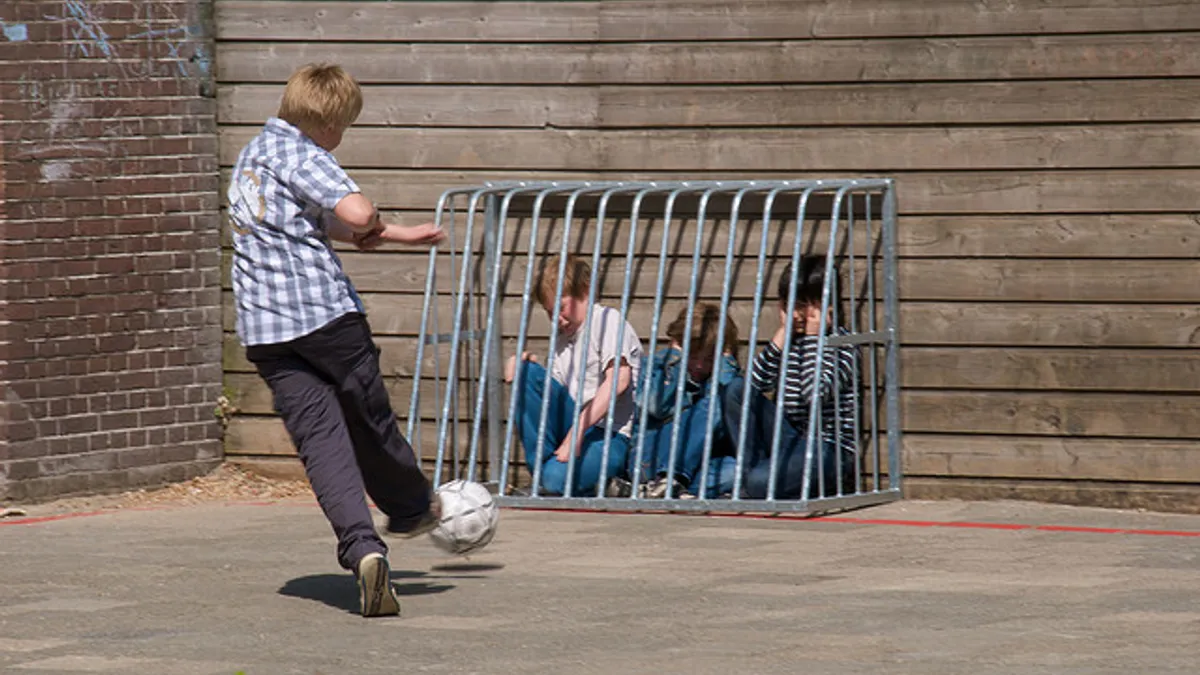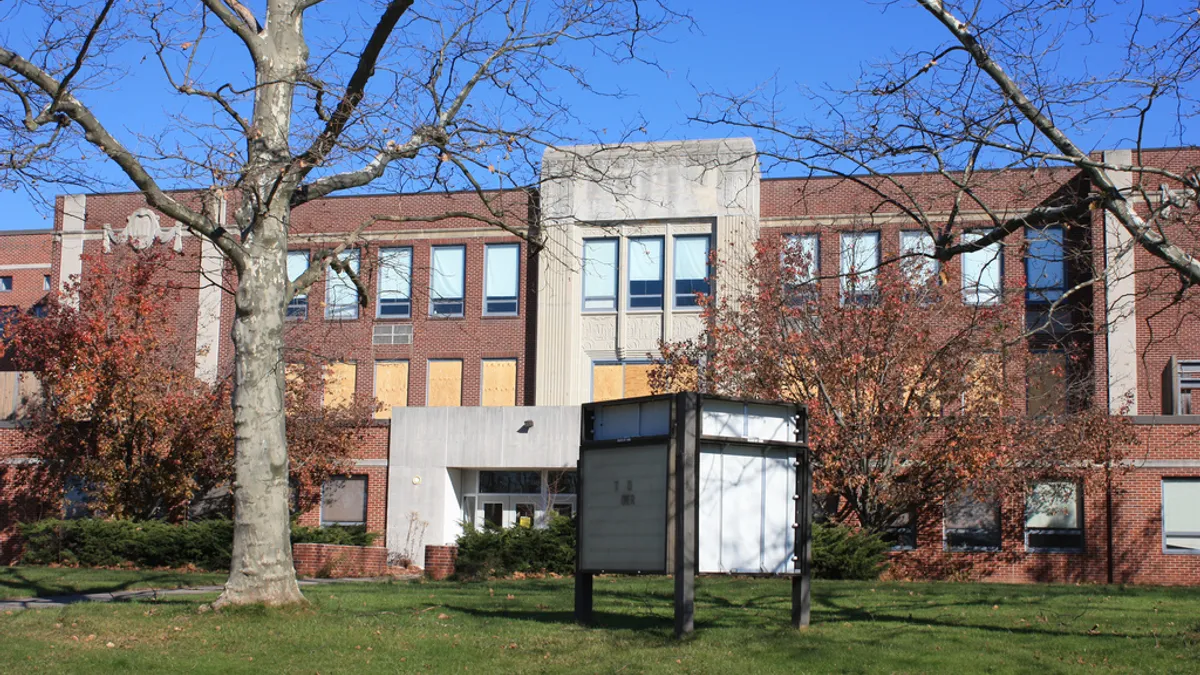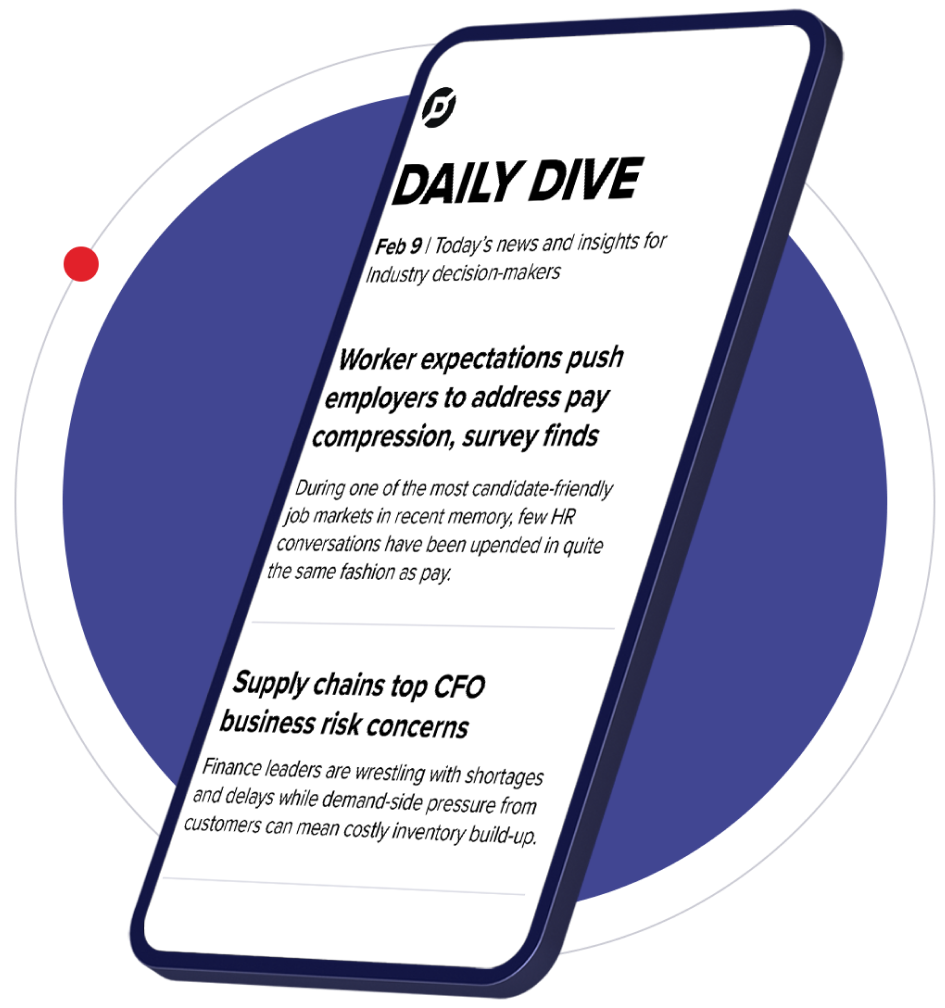K-12: Page 139
-
Solving Title I schools' problems still achievable by low-tech means
A principal at one of the fastest improving schools in Nevada shares how research into proven educational strategies helped facilitate a turnaround.
By Amelia Harper • Dec. 1, 2017 -
'Family Playlists' the latest infusion of tech into parent-teacher communications
The model uses a two-part assignment to get parents more directly involved in the learning process.
By Roger Riddell • Nov. 30, 2017 -
Trendline
Curriculum
Educators are exploring a variety of strategies to improve students’ learning experiences while continuing to navigate ongoing political disputes.
By K-12 Dive staff -
Survey: Public school parents less satisfied with engagement opportunities
The survey asked parents, for example, whether they are encouraged to visit and observe classrooms and whether teacher conferences accommodate their schedules.
By Linda Jacobson • Nov. 30, 2017 -
Better teaching through technology? Only with thoughtful preparation
Educators must ensure a cautious approach to tech use that doesn't make students overly reliant upon it to complete tasks and solve problems.
By Roger Riddell • Nov. 30, 2017 -
STEM expands once again — to include sports?
Trigonometry can be connected to baseball, for example, and biking can teach concepts such as force and aerodynamics.
By Amelia Harper • Nov. 30, 2017 -
Gallup poll: Superintendents see high-quality teacher, principal candidates waning
Some 66% of district superintendents report a declining number of new, highly qualified teacher candidates, with 43% additionally reporting declines in principal candidates.
By Roger Riddell • Nov. 29, 2017 -
Report: Teacher planning, collaboration time varies widely across districts
At the secondary level, some teachers receive less than a half-hour for planning, while in one California district teachers have more than three times that amount.
By Linda Jacobson • Nov. 29, 2017 -
Study: State ed funding still lagging below pre-recession levels
Many districts have not restored teaching and other positions.
By Linda Jacobson • Nov. 29, 2017 -
Students may be best resource to combat bullying
Because teachers cannot be everywhere, schools must develop strategies to empower students.
By Amelia Harper • Nov. 29, 2017 -
Special ed practices vary greatly from state to state, report reveals
States with the highest numbers of students classified with special needs were less likely to agree that the number was correct.
By Amelia Harper • Nov. 29, 2017 -
Dive Awards
Announcing the nominees for the 2017 K-12 Dive Awards
Ahead of the Dec. 4 reveal of this year's winners, take a look at the complete list of this year's nominees.
By Roger Riddell , Linda Jacobson • Nov. 28, 2017 -
Next-Gen Science Standards making lessons fun, but costly
Simple science experiment supplies like vinegar and baking soda, for example, can run a minimum of $50 for a group of 150 students.
By Roger Riddell • Nov. 28, 2017 -
Online professional development site to expand virtual coaching model
Under BetterLesson's model, district administrators choose focus areas connected to their instructional priorities and then match teachers with coaches based on several factors.
By Linda Jacobson • Nov. 28, 2017 -
Personalized learning's impact should exceed academic success
To assess the full impact of an academic program, schools must measure success in ways that will reflect the development of the student as a whole person, not just as an academic being.
By Amelia Harper • Nov. 28, 2017 -
New central office organizational model reflects school feeder patterns
The structure enhances collaboration between administrators and teachers.
By Amelia Harper • Nov. 28, 2017 -
Advocate tries new approach to developing child sexual abuse prevention curriculum
Montana House Bill 298, which passed this year, encourages the state education agency to raise awareness of abuse and increase efforts to prevent it.
By Linda Jacobson • Nov. 27, 2017 -
Schools often fail to identify homeless students
In Texas, some districts reported having no homeless students.
By Linda Jacobson • Nov. 27, 2017 -
Survey: High demand for tech industry to offer more apprenticeships, classroom support
OZY and SurveyMonkey's recent "OZY Poll on the Future of Work" found respondents reporting a desire for a more hands-on approach to education from industry.
By Roger Riddell • Nov. 27, 2017 -
Teacher ed programs turn to virtual reality
The approach allows future teachers to learn from mistakes in a "low-stakes" environment.
By Pat Donachie • Nov. 27, 2017 -
Opioid epidemic is raising absenteeism, special ed placement
Schools typically address drug education issues in late elementary or middle school, but the increased availability of opioids has pushed the need for such education even earlier.
By Amelia Harper • Nov. 27, 2017 -
Student-driven models allow more personalization, engagement
Students may achieve more if they have a greater voice in choosing what they learn.
By Amelia Harper • Nov. 27, 2017 -
Deep Dive
School redesigns accommodate today's (and tomorrow's) teachers and learners
In open, flexible environments, "it’s the space and the instructional strategies that work together."
By Linda Jacobson • Nov. 22, 2017 -
Wildfire-affected schools consider summer program expansion to cover instructional loss
The Santa Rosa City Schools, for example, plans to work with higher education partners to provide summer programs for K-12 students.
By Linda Jacobson • Nov. 22, 2017 -
What would FCC proposal to ditch net neutrality mean for K-12?
The move could see some resource providers' content delivered at faster speeds than others.
By Roger Riddell • Nov. 22, 2017 -
Mobile tech helps increase equity in high-poverty areas
A school district on Texas' Mexican border is offering increased tech access to students through an innovative solution.
By Amelia Harper • Nov. 22, 2017





